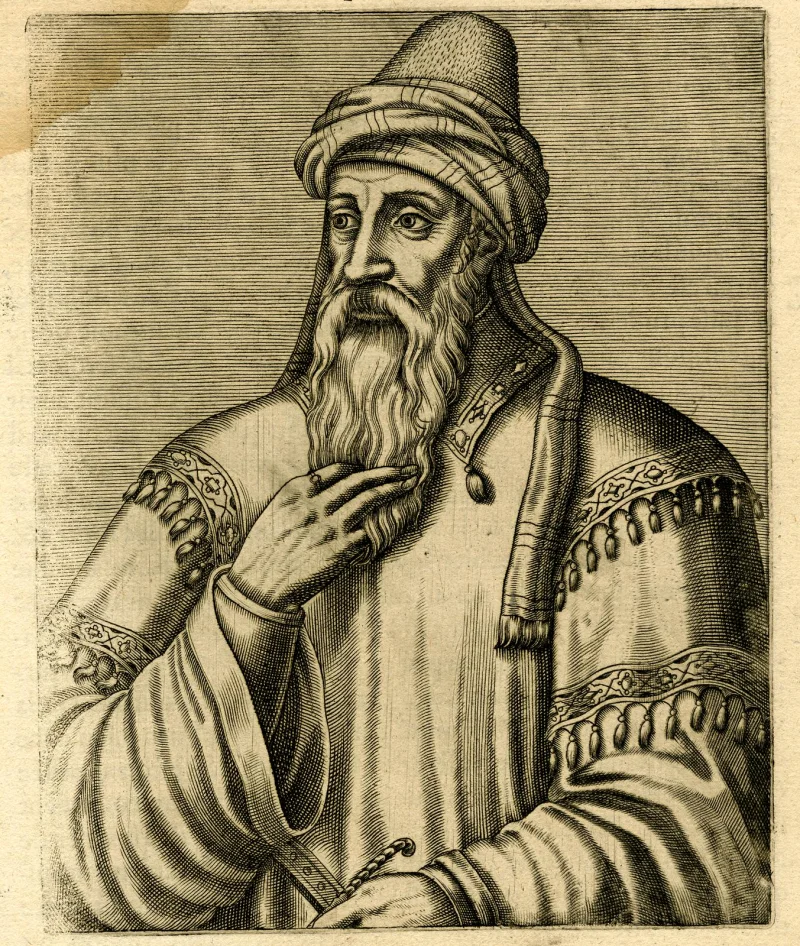Short Summary
Saladin, born in 1137 in Tikrit, Iraq, was a renowned Muslim military leader and Sultan of Egypt and Syria. He is best known for uniting the Muslim world and leading the Islamic forces during the Crusades, particularly for his victory at the Battle of Hattin and the subsequent recapture of Jerusalem in 1187. Saladin's leadership and chivalrous conduct earned him respect from both his allies and adversaries, making him a celebrated figure in both Islamic and Western history.
Early Life & Education
Saladin was born into a Kurdish family of noble descent, in Tikrit, present-day Iraq. His father, Ayyub, was a prominent figure and served the Zengid dynasty. Saladin's early education included studies in theology, science, and literature, which were typical for someone of his social standing. His upbringing was deeply influenced by Islamic principles, which shaped his character and leadership style. From a young age, he was exposed to the military and political spheres due to his family's status, which laid the foundation for his future military career.
Career Highlights
Saladin's career began under the tutelage of his uncle, Shirkuh, a military commander in the service of the Zengid dynasty. He rose to prominence during the Egyptian campaigns, eventually becoming the vizier of Egypt. Following the death of Nur ad-Din, Saladin took control and established the Ayyubid dynasty, unifying Egypt and Syria. His most notable military achievement was at the Battle of Hattin in 1187, where he decisively defeated the Crusader forces, leading to the recapture of Jerusalem. His strategic acumen and diplomatic skills were instrumental in consolidating his power and expanding his territories.
Major Achievements
- Unified Muslim territories under the Ayyubid dynasty, strengthening Islamic political power.
- Recaptured Jerusalem from the Crusaders in 1187, a pivotal moment in the Crusades.
- Established a reputation for chivalry and mercy, even towards his adversaries.
- Reformed the administrative and military structures of his territories, enhancing governance.
Famous Quotes
- "I warn you against shedding blood, indulging in it and making a habit of it, for blood never sleeps."
- "My wealth is in my generosity."
Interesting Facts
- Saladin is often depicted in Western literature as a model of knightly virtue and chivalry.
- He was known for his generosity, often giving away his personal wealth to those in need.
- Despite being a formidable foe, he maintained respectful relations with Richard the Lionheart during the Third Crusade.
- Saladin's legacy extends into modern times, with his name being used for various institutions and military units in the Arab world.
Legacy / Influence
Saladin's legacy is profound, leaving an enduring impact on both Islamic and Western cultures. He is remembered for his unification of Muslim territories and his role in the Crusades, which altered the course of Middle Eastern history. His chivalrous conduct and leadership qualities continue to be admired, and he remains a symbol of justice and integrity. His influence extends beyond his era, inspiring countless leaders and becoming a cultural icon in literature and film.
FAQ
Q: Why is Saladin famous?
A: He is famous for uniting the Muslim world and leading the recapture of Jerusalem from the Crusaders in 1187.
Q: What was Saladin's real name?
A: Saladin's real name was An-Nasir Salah ad-Din Yusuf ibn Ayyub.
Q: What was Saladin's approach to leadership?
A: Saladin was known for his chivalry, mercy, and strategic acumen, often showing respect and generosity to both allies and foes.








